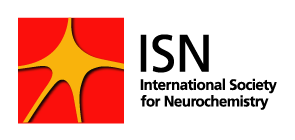The fourth series of article has a closer look at Neuroscience in South Korea. Our monthly series had covered Europe and North America-Brazil. This month we explored the life of young Korean neuroscientists.
The interest of neuroscience research in Korea dates back to the 17th century. The Korean government put neuroscience research as a national priority. Hence, many Korean postdocs and students have been majorly involved in neuroscience work. It was no surprise to have a common response from the interviewees that neuroscience is one of the major field of research in the country. The main universities and institutes that deal with neuroscience and behavior are the Seoul National University-Seoul City, Korea University-Seoul City, Yonsei University- Seoul City, Korea Brain Research Institute-Daegu City, and Korea Institute of Science and Technology-Seoul City. Researchers and students are engaged in broad aspects in neuroscience, from basic to clinical studies to understand the brain diseases, and for developing novel therapeutic technologies. The collaboration among Korean scholars is well-established, and upon all the hard work, they still feel that they need to work harder to understand neuropathology and predict future health. One of the interesting responses was linking artificial intelligence and the brain. While many interviewees are involved in research, they express an interest in industry work, which is likely because of the industrialized culture.
Koreans are currently interested in acquiring skills to develop, translate and commercialize their research findings. Many respondents claimed to lack knowledge on how to take the next step after succeeding in basic research.
Unlike the surveys from Brazil and the UK earlier this year, short-term contracts are not a serious issue among Korean researchers. Many postdocs have the options to change their positions or careers after finishing off their projects. From a personal view, this would be the case for most but not all researchers across the country.
The perseverance and tenacity are the driving factors of Korean researchers’ ambitions. They consistently acquire new technologies in their work, evident from their productive research outcomes. Yet, some young scientists fear to take a leap of working abroad and prefer to continue their career home country. The reason the barrier in communication with foreign languages might affect their career and enthusiasm in research.
What can international societies do to advance a global career in neuroscience research? Surprisingly, not many Korean young researchers have participated in schools and social activities organized by the neuroscience societies. Instead, many interviewees agree that it would be good to have big conferences, such as ISN-ASN, held in their home country.
Stay tuned for the next What’s on! from YSSC! We will move to another well-established community in a different country.
Your YSSC
